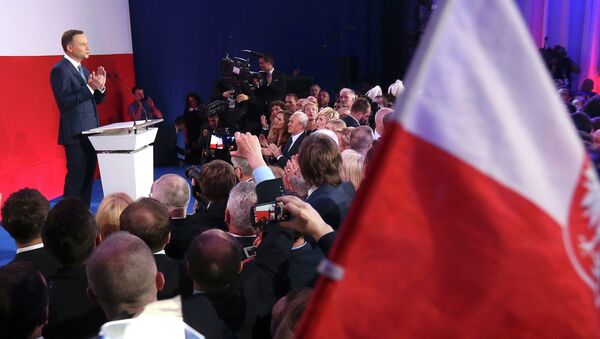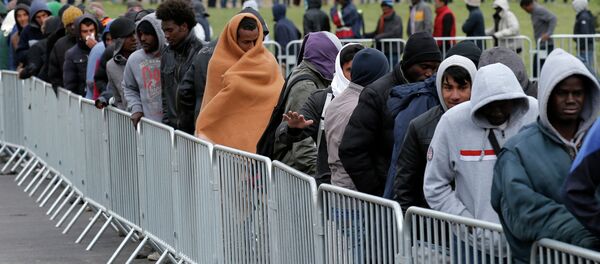MOSCOW (Sputnik), Svetlana Alexandrova – Duda's victory comes at a time as EU skepticism is gaining ground among member-states. EU foreign affairs chief Federica Mogherini said on Monday that the results of the municipal elections in Spain, the presidential election in Poland, as well as the news from Greece and the UK, show there is a real need to rethink the European project.
Duda was a member of the European parliament prior to his victory in the presidential election, Korwin-Mikke reminded, adding that his statements, where he shared the sentiments of Polish citizens disappointed with the EU policies, were just a part of his presidential campaign.
“I do not share the concerns that Andrzej Duda will shift the country’s policy towards EU skepticism.”
Duda gained 51.55 percent of the votes in the May 24 runoff, ousting incumbent President Bronislaw Komorowski.
Earlier this month, Prime Minister Ewa Kopacz attacked the migrant relocation proposal pointing that Poland is in favor of voluntary decisions on this issue and does not want to be pressurized.
“I believe, that new Polish president Andrzej Duda will continue to withstand such a policy,” Janusz Korwin-Mikke told Sputnik.
The migrant quota system has already faced strong opposition from a number of European states, including Britain, France, Spain, Slovakia, Hungary, Estonia and the Czech Republic.
"We are not saying that we will not welcome migrants,” Korwin-Mikke said adding, however, that Poland's economy suffers as migrants arrive simultaneously.
According to the EU plan, Poland, as the EU’s sixth biggest country, would have to accept 5.64 percent of claimants.
An uncontrolled flow of migrants to Poland became a burden not only for the government, but a great concern for ordinary citizens, Korwin-Mikke stated.
“An idea of bringing new migrants is extremely unpopular not only among politicians, but also among ordinary people.”
Earlier in the day, the European Commission urged the bloc’s members to take in 40,000 people fleeing Syria and Eritrea to Italy and Greece and redistribute them across the bloc.
This comes in addition to plans announced by the European Union earlier this month to resettle 20,000 refugees from outside the bloc over the next two years.



